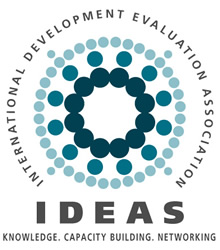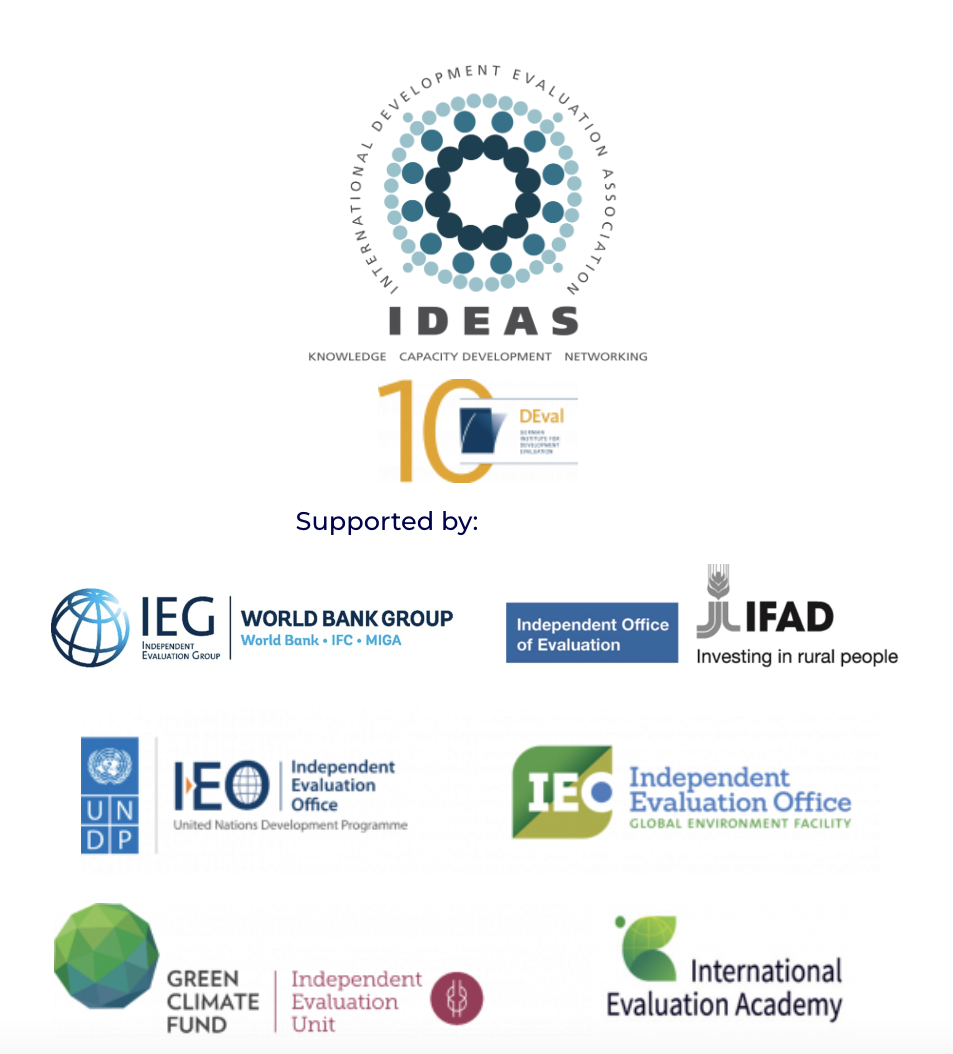Since its inception, IDEAS has organised or been involved in organising a number of international conferences and workshops. Our regular meetings – an Annual Assembly, a Biennial Conference and our Global Assemblies – are held around the world and give members an opportunity to meet and engage in lively exchanges of ideas and experiences.
Our Biennial Conferences and Global Assemblies focus on specific relevant themes. These themes have included evaluating sustainable development, evaluation and inequality, evaluation in turbulent times, evaluation capacity building and evaluation for development. The documents of each Conference are available for downloading.
Power Of Evaluation:
Influencing Decision Making for a Better and More Equal World
Evaluation for Transformative Change:
Bringing experiences of the Global South to the Global North
Third International Conference on Evaluating Environment and Development
The Hotel DUO Prague Prague, Czech Republic 30 September-4 October 2019
Mexico 2017
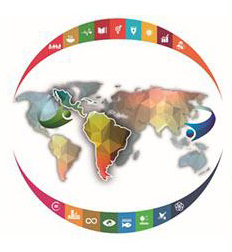
The 2017 Global Assembly was held as part of the Joint Conference on Evaluating for the SDGs held in in Guanajuato, Mexico, from 4-8 December 2017.
Bangkok 2015
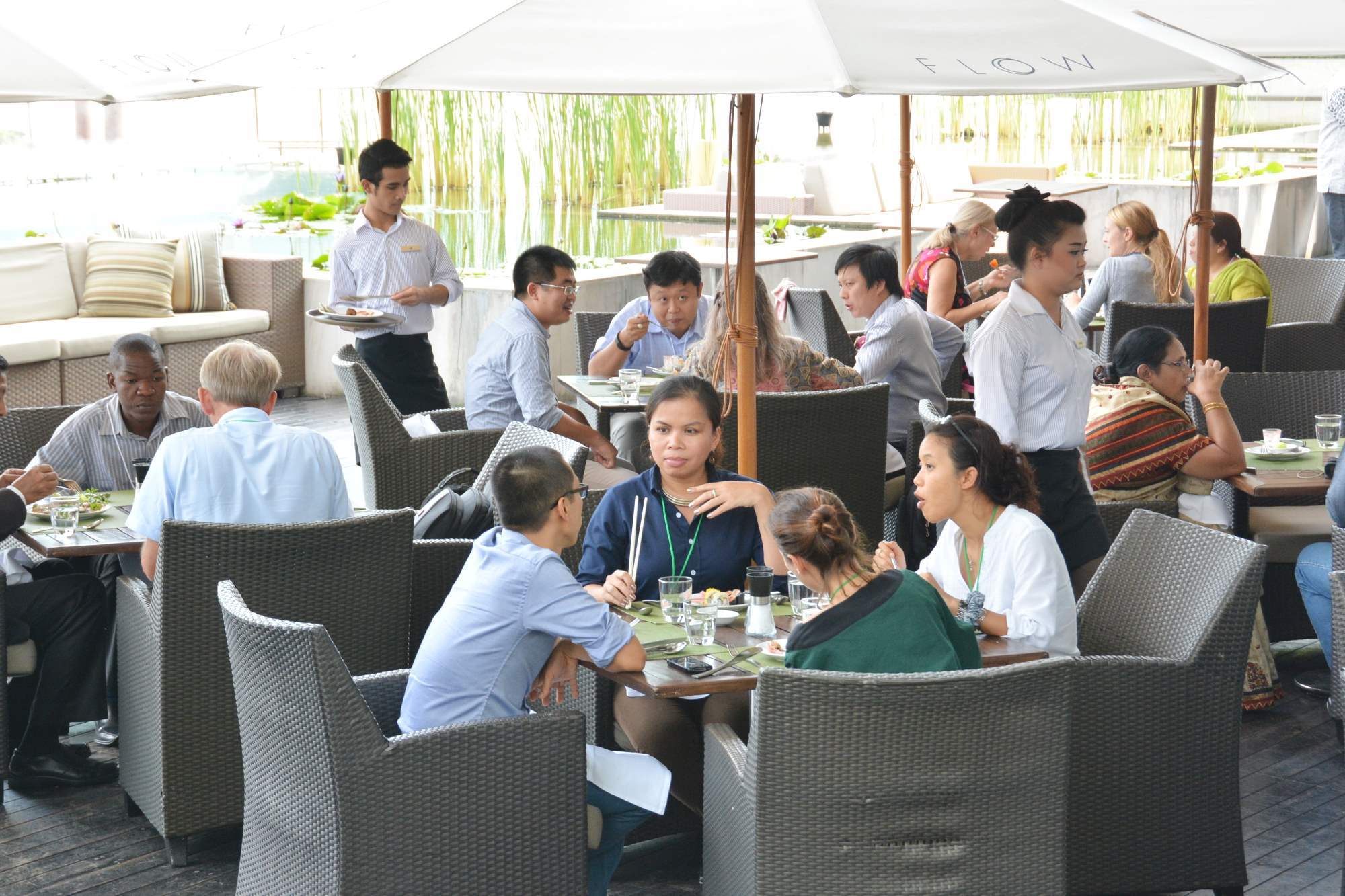
Evaluating Sustainable Development.
Conference co-hosted by DFID, and co-organized with the Fourth International Conference on National Evaluation Capacities – NEC-UNDP.
Objectives:
- To discuss possible solutions to the emerging evaluation challenges;
- To discuss ways to integrate issues implied in the SDGs into evaluations of policies, programs and interventions.
Barbados 2013
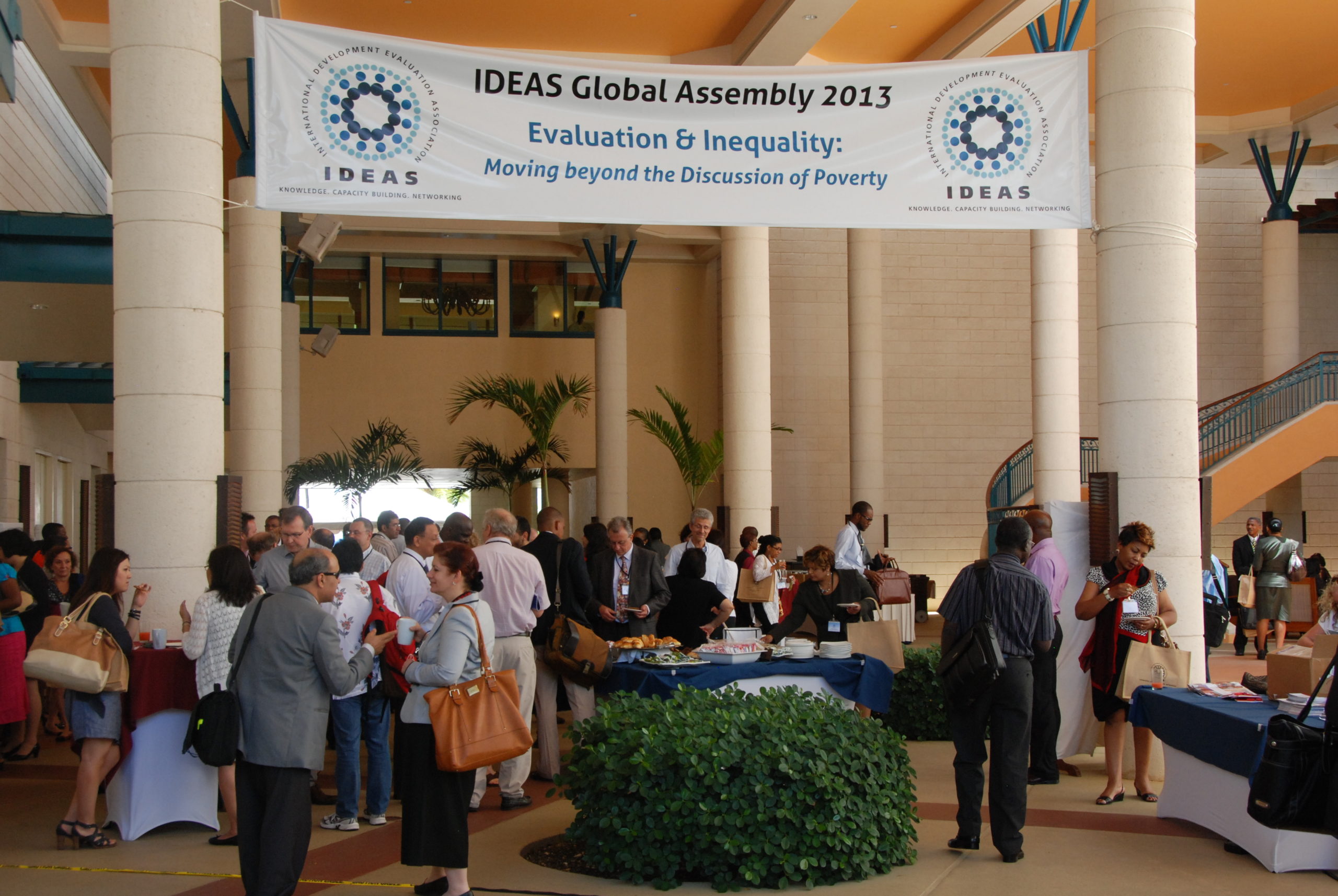
Evaluation and Inequality: Moving Beyond the Discussion of Poverty.
Objectives:
- Identify new responses in methods, processes, and outcomes shaping the practice of development evaluation;
- Share innovative experiences in evaluation methods among practitioners, users, and beneficiaries of development evaluation;
- Examine new forms of partnerships and capacities needed to rethink, reshape, and reform development evaluation.
The book Poverty, Inequality, and Evaluation: Changing Perspectives, organized by Ray Rist, Frederic Martin and Ana Maria Fernandez, published by the World Bank, gathers works presented at the 2013 Biennial Conference and Global Assembly.
Jordan 2011
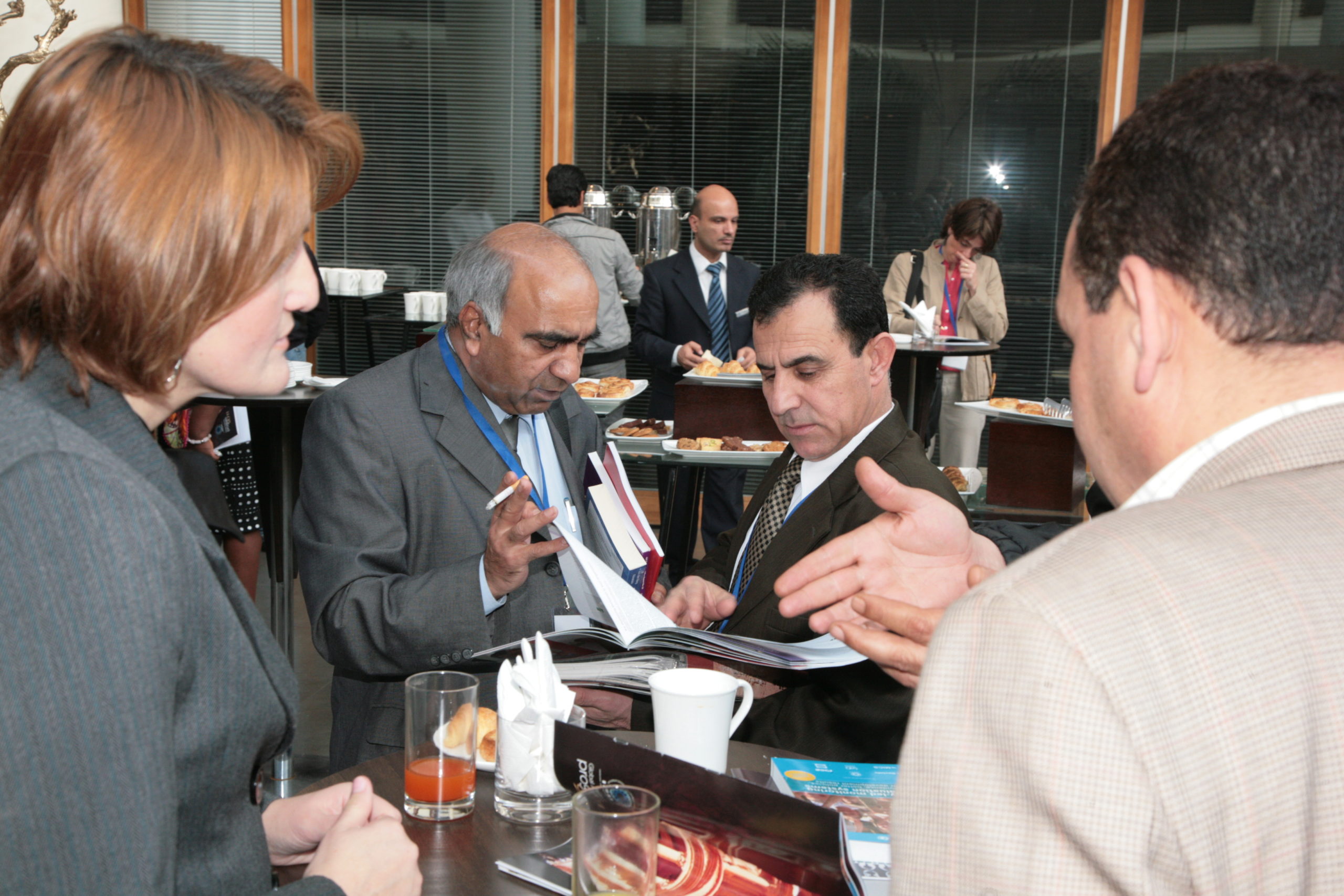
Evaluation in Turbulent Times: The Crises of Food, Fuel, and Finances.
This IDEAS Assembly was ground breaking and innovative, as no evaluation association anywhere in the world has taken on this theme for their annual meeting.
Objectives:
- Discuss the ramifications of the global turbulence, specifically in the areas of food, fuel, and finances;
- Discuss the challenges, the realities, and the ways forward. The book Development Evaluation in Times of Turbulence: Dealing with Crises that Endanger our Future, organized by Ray Rist,Marie-Helene Boily and Frederic Martin, and published by the World Bank, gathers works presented at the 2011 Biennial Conference and Global Assembly.
Johannesburg 2009
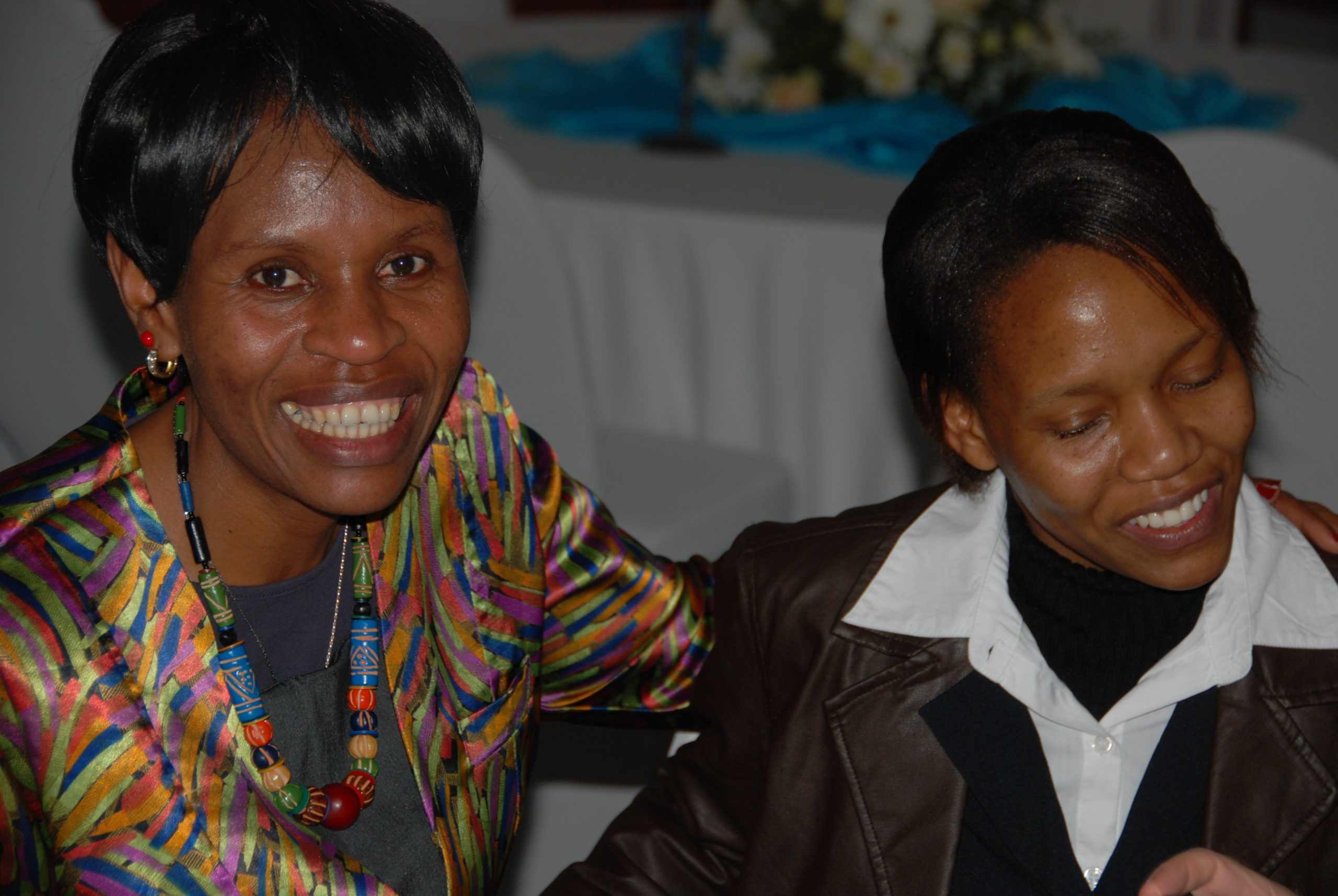
Getting to Results: Evaluation Capacity Building and Development.
Objectives:
1. Clarifying present knowledge on evaluation capacity building;
2. Learning lessons from development evaluation experience;
3. Understanding the challenges faced by development evaluators in taking these efforts forward.
The book Influencing Change: Building Evaluation Capacity to Strengthen Governance, organized by Ray Rist,Marie-Helene Boily and Frederic Martin, was published by the World Bank, gathering works presented at the 2009 Biennial Conference and Global Assembly.
New Delhi 2005
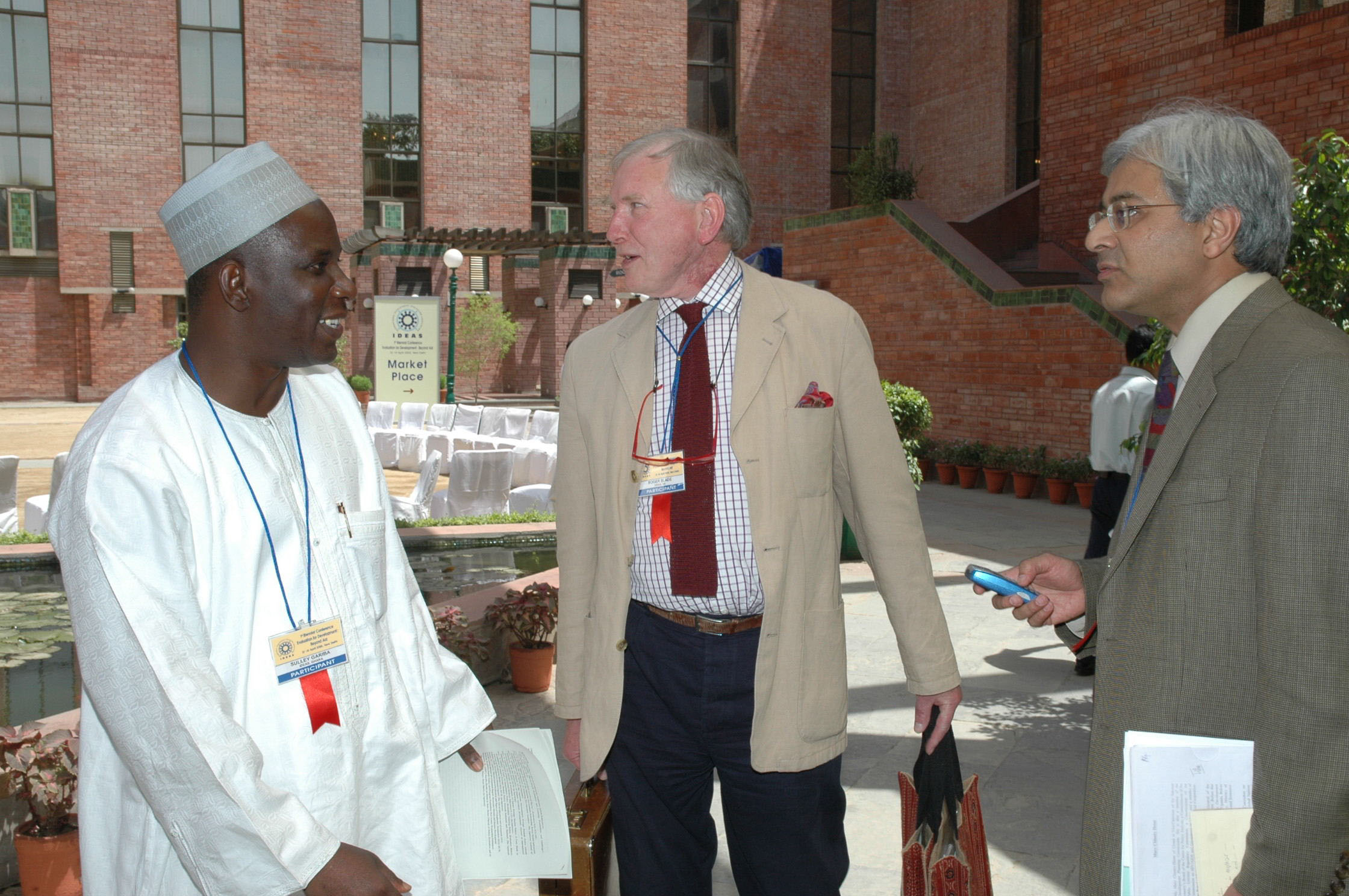
1st IDEAS Biennial Conference: Evaluation for Development — Beyond Aid. Objectives :
- Examine the implications of changing context and concepts of development for evaluation and the evaluation community;
- Assess new responses in methods, processes and outcomes shaping the practice of development evaluation;
- Share innovative experiences among old and new, young and old practitioners, commissioners, users and beneficiaries;
- Examine new forms of partnerships and capacities needed to re-think, reshape and reform development evaluation.

